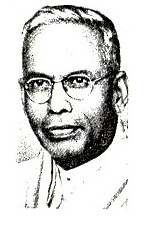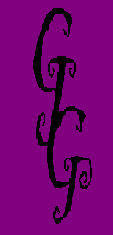
The Greatest Librarian of the Twentieth Century
9 August 1892 - 27 September 1972

We must all bow down in reverence to Ranganathan the Guru of Library Science.
Ranganathan had already begun a career in mathematics, when he was appointed as first Librarian of the University of Madras in 1924, a post he would hold for 19 years. He then travelled to Britain where he endured the horrors of library school in University of London. (He found the cataloguing course very boring.) Then on his return journey to India, undisturbed by the other passengers, who were all English he began work on formulating his own unique ideas.
Ranganathan made many different contributions to the world of libraries through his comprehensive writings. Particular successes included his Colon Classification(1933) which introduced a system of faceted classification that is used today in many research libraries (mainly Indian ones admittedly). Also notable is his technique of chain indexing for deriving subject-index entries. His book Headings and Canons is credited with shaping the Anglo American Cataloguing Rules of 1967.
During his nearly twenty year tenure as librarian at the University of Madras, Ranganathan never took a single day's leave. How did he keep up his incredible work load? His inner strength was inspired by his philosophical and mystical musings on the nature of library science, which he perceived as the path toward
"the development of an atmosphere of peaceful co-existence among nations . . . and the evolution of One-World." Another notable musing on the same theme in his Book Selection is based on the traditional Hindu insight that all knowledge is one and there is an underlying unity behind diversity, which for him was shown most clearly in the Sanskrit word Ekavakyata "unity". Thus he said "I often realise that even trivial occurrences are organically fused into a single life-experience."
These Mystical thoughts are not merely part of Eastern philosophy. One of Ranganathan's favourite pieces of English poetry comes from Francis Thompson expresses the same thought:
All Things by immortal power
Near or far
Hiddenly
To each other linked are
That thou canst not stir a flower
Without the troubling of a star
In1931 Ranganathan gave Library profession an inspirational mantra, based on this perennial philosophy, his "Five Laws,":
1. Books are for use.
2. Every book its reader.
3. Every reader his book.
4. Save the time of the reader.
5. A library is a growing organism.
These laws formed the basis for Ranganathan's entire writings, thoughts on librarianship and his mission in life. Awards, titles, honor, international acclaim all deservedly befell Ranganathan before he passed in 1972. His contribution to libraries the world over can never be underestimated.
Some of Ranganathan's important works include:
Five Laws of Library Science(1931),
Classified Catalogue Code(1934),
Prolegomena to Library Classification(1937)
Elements of Library Classification(1945)
Headings and Canons(1955)
How YOU can perpetuate Ranganathan's Legacy in your Library:
Convert to Colon Classification:

Cast aside your Dewey and Library of Congress classification system. Colon is the only true Classification system worthy of the modern library. So your users complain about its use of symbols and general confusion. Serves them right for being mathematically illiterate. Remember Libraries working to a Colon System are in tune with the Greater Cosmic Library of which we are all a part! CC makes sense if you are in touch with the deeper reality behind the veil of tears, which is our world.